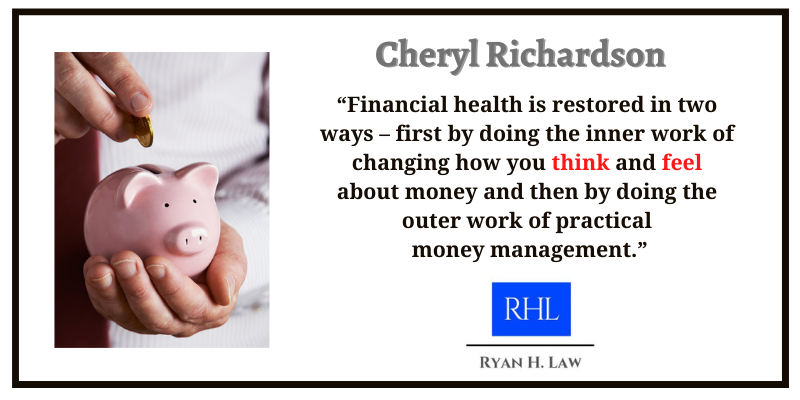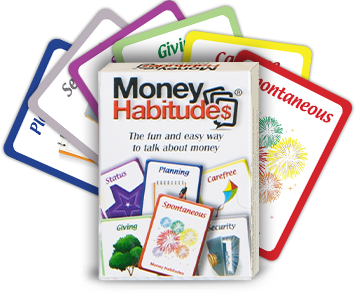
by Ryan H. Law
As financial advisors we are experts in the “practical money management” world, as we should be! It is critical to understand asset allocation, estate planning, risk management, and the other parts of the “outer work” as Richardson calls it.
But what about the “inner work?” Which classes did you take that taught you how people think and feel about money? Some advisors have had a behavioral finance class along the way, or perhaps even a psychology class or communication class, but the reality is that most of us have never had a class teaching us how people “think and feel” about money.
I would like to share a few tools that I use to help me discover my client’s thoughts and feelings about money. I’ll share one tool in this post and other tools in the next few posts.
Money Habitudes

Money Habitudes was created by Financial Coach Syble Solomon. Habitudes stands for “Habits and Attitudes.” Syble noticed that otherwise rational people would make totally irrational money decisions, and she wanted to create a tool that would encourage them to talk openly and honestly in a way that was interactive and engaging. Money Habitudes was the solution.
The goal of Money Habitudes is to “Build trust and quickly reveal what habits and attitudes motivate a person’s money behaviors,” to “easily start great money conversations,” and “reveal the ingrained thoughts, feelings and behaviors that influence our decisions and actions.”
Just to reiterate, one game can:
- Build trust
- Reveal what habits and attitudes motivate their behavior
- Start great money conversations
- Reveal what is influencing a person’s money decisions and actions
How does it work?
Money Habitudes is a deck of cards with a statement on each card. You simply read the statement and decide if you agree or disagree with it. Here are some sample statements:
- I think things will work out, so I don’t worry about money.
- I will spend a lot of time and money to get a good deal.
- I feel like a failure when I do not have as much money as I should.
- I give money to help others or to support charitable organizations.
- I always know exactly how much money I have, how much is coming in and how much is being spent.
You go through the cards quickly – not taking too much time to think about the statement. After all the cards are separated you take the cards in the “That’s me” pile and separate them by category:
- Spontaneous
- Carefree
- Giving
- Status
- Security
- Planning
There are discussion cards that talk about the advantages and disadvantages of each Habitude, some suggestions to create more balance, and discussion questions to help guide the conversation.
I have found that Money Habitudes encourages great conversations. If a client scores high in Carefree, for example, we can explore the roots of that Habitude, discuss strengths, and discuss weaknesses.
With a couple I have each one independently do the game, then we discuss it together. It can be helpful for a spouse to recognize that even though they are a Planner, their spouse is Spontaneous, and that each Habitude has strengths and weaknesses.
Money Habitudes helps me and my clients think and talk about that inner work.
However, to help a client do the inner work, we need to do it ourselves! I do the Money Habitudes game once or twice a year and have all of my students and Coaches do it as well.
I consistently score high in Security and Planning, but playing the game helps me think about the strengths in those categories and the weaknesses. It also helps me recognize that perhaps I need to incorporate some more spontaneous or carefree spending.
You can buy a physical deck (or decks) for an interactive experience, or you can purchase the online version, where the client plays it on their own and a detailed user report is generated.
I personally own several decks, and we have several dozen decks that we use at our Financial Counseling center. We also use the online version.
Action Items:
- Check out Money Habitudes online at https://www.moneyhabitudes.com/
- Do the inner-work yourself! Take Money Habitudes to see what your dominate habits and attitudes are. You can take an online version or order decks at https://www.moneyhabitudes.com/.

All images in this post except the Money Habitudes image are licensed by Ingram Image – Stock Photo Secrets (AFF)


Leave a Reply